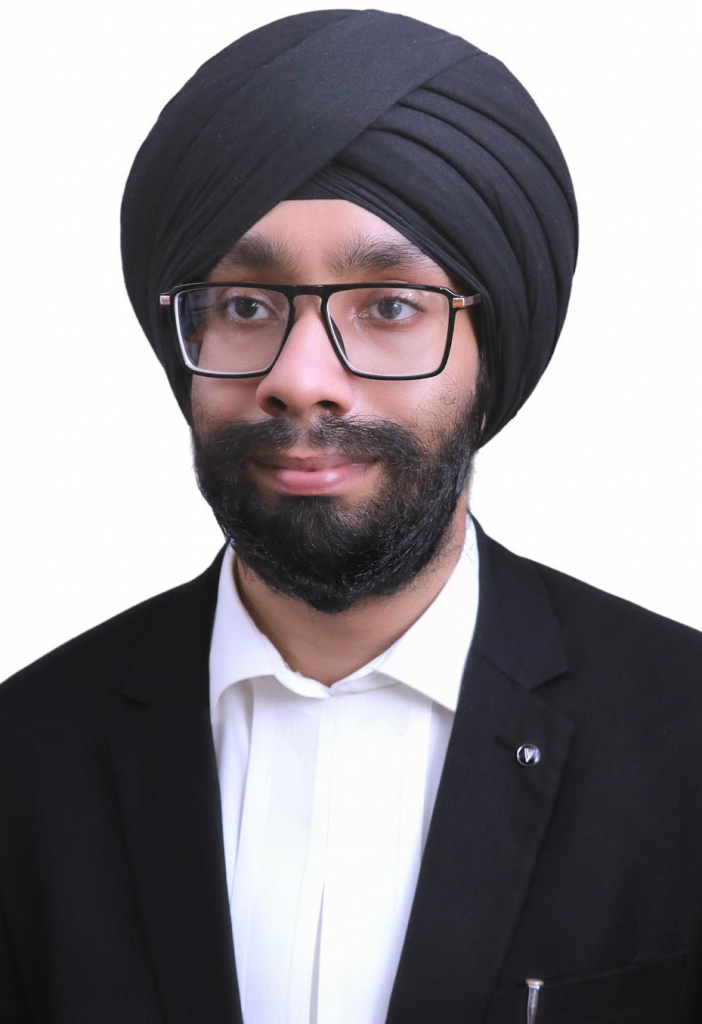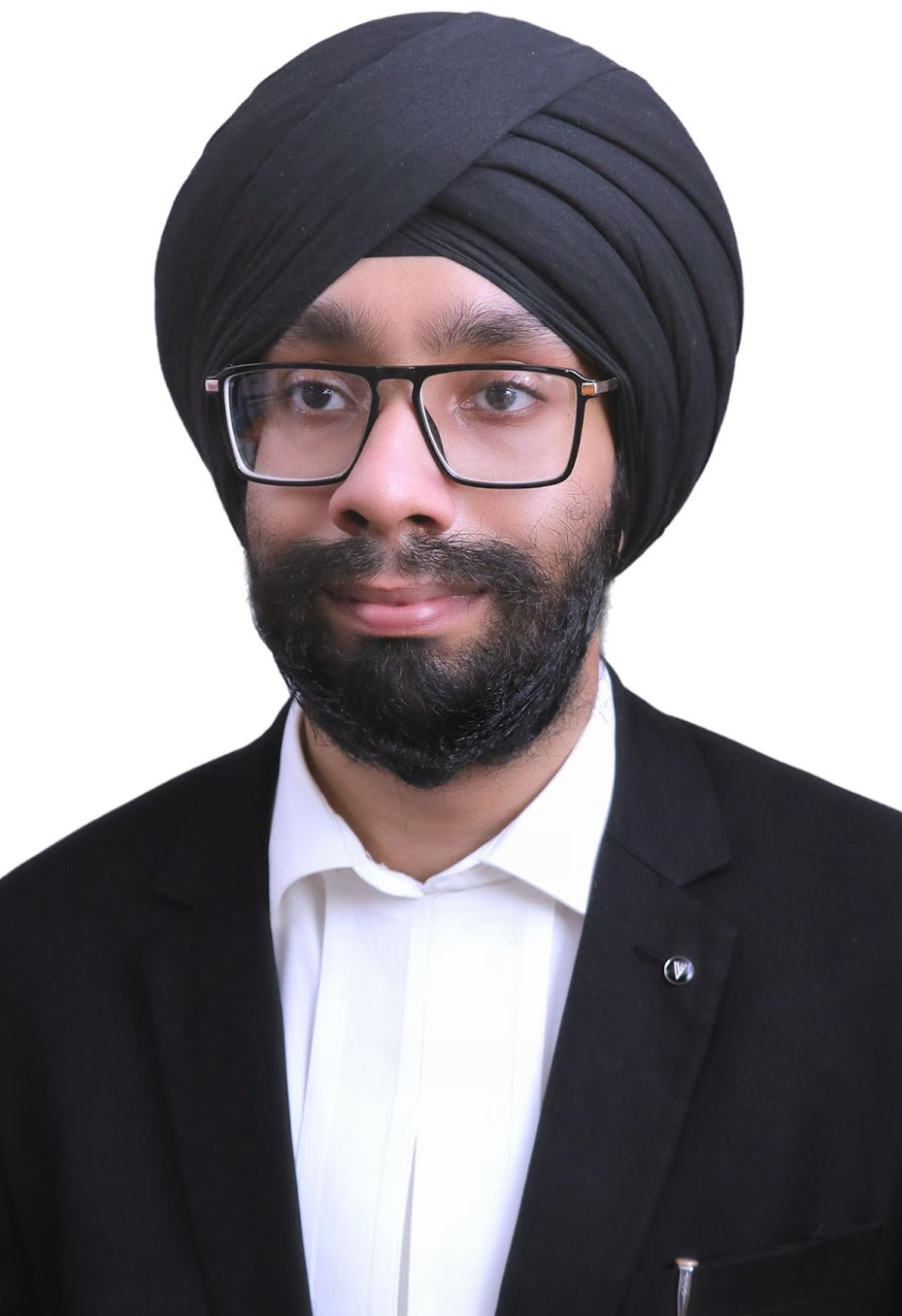This interview has been published by Priyanka Karwa and The SuperLawyer Team

Can you tell us about your journey into the field of law and how you eventually became involved in alternative dispute resolution (ADR)?
My interest in Alternative Dispute Resolution (ADR) was piqued during my formative years as a law student. I was deeply engrossed in the philosophies of capitalism and free-market economics, and I saw a parallel between these concepts and ADR. To me, ADR represented a form of judicial privatization, offering a more efficient and effective means of resolving disputes compared to traditional litigation. Recognizing the untapped potential of ADR, I initiated MediateGuru along with my esteemed colleagues, Mr. Aditya Mathur and Ms. Garima Rana. Our mission has been to normalize the practice of mediation and ADR in the legal landscape. I am pleased to say that our efforts have yielded some measure of success, and we continue to work diligently towards making ADR a standard practice in dispute resolution.
You’re the founding partner at MediateGuru, co-founder of LicitElite, and founder of DiploTics. Could you share the inspiration behind starting these initiatives and the impact you aim to make in the legal and ADR sectors?
As the founding partner at MediateGuru, co-founder of LicitElite, and founder of DiploTics, my overarching vision has been to innovate and elevate the standards within the legal and ADR sectors. Each initiative serves a unique purpose but collectively aims to bring about meaningful change.
MediateGuru was born out of a desire to mainstream Alternative Dispute Resolution methods, particularly mediation, as a viable and efficient means of settling disputes. We aim to educate, train, and create awareness about the benefits of ADR, thereby transforming it into a norm rather than an exception in the legal landscape.
The future of dispute resolution is not in the courtroom, but in the meeting room—where mediation and arbitration reign supreme.
LicitElite, on the other hand, focuses on legal research and advocacy. We strive to provide a platform for young legal minds to engage in meaningful research and contribute to the legal discourse. Our goal is to foster a culture of continuous learning and intellectual curiosity within the legal community.
DiploTics is my latest venture, which aims to bridge the gap between diplomacy and technology. In an increasingly interconnected world, it’s crucial to understand the legal implications of technological advancements. DiploTics serves as a think tank that brings together experts from various fields to discuss, analyze, and offer solutions to complex issues at the intersection of law, technology, and diplomacy.
The impact I aim to make through these initiatives is multi-faceted: from making ADR a standard practice to enriching legal research and understanding the confluence of technology and law. I am committed to driving change and setting new benchmarks in each of these areas.”
MediateGuru connects experienced mediators and arbitrators with young lawyers and ADR practitioners in over 150 countries. What led you to create this international platform, and what role do you see it playing in the future of ADR?
In recognizing the transformative potential of Alternative Dispute Resolution (ADR), I felt a compelling need to create MediateGuru as an international platform that could serve as a vital conduit between experienced mediators and arbitrators and the next generation of ADR practitioners. The idea was not just a fleeting thought but a culmination of years of observation, research, and firsthand experience in the field. I noticed a significant gap in the market where young lawyers and ADR practitioners, especially those from developing countries, often lacked the resources, mentorship, and opportunities to excel in this specialized area of law. This observation was juxtaposed with another reality: that seasoned professionals in the field were looking for ways to give back, to mentor, and to pass on their wealth of knowledge to the next generation. MediateGuru was conceptualized to bridge this gap, to create a symbiotic relationship where knowledge could be exchanged, skills could be honed, and the overall quality of ADR practice could be elevated on a global scale.
The international aspect was crucial; ADR is not confined by geographical boundaries. Disputes are increasingly becoming cross-border, and the laws and practices governing them are becoming more harmonized. Therefore, it was imperative that MediateGuru had a global reach, connecting professionals and young practitioners across more than 150 countries. This international dimension adds layers of complexity but also unparalleled opportunities for learning and growth. It allows for the sharing of diverse perspectives, methodologies, and cultural nuances that are incredibly enriching and eye-opening for anyone serious about a career in ADR.
Looking ahead, I see MediateGuru playing a multifaceted role in the future of ADR. First, as a catalyst for change, challenging the status quo and pushing for reforms in how ADR is perceived and practiced globally. Second, as an enabler, providing the tools, resources, and opportunities for anyone interested in ADR to pursue their passion and excel in their career. Third, as a thought leader, contributing to the global discourse on ADR, influencing policy decisions, and setting new benchmarks in practice and ethics. And finally, as a community builder, fostering a sense of belonging, collaboration, and mutual respect among ADR practitioners worldwide. In essence, MediateGuru aims to be more than just a platform; it aspires to be a movement that democratizes access to ADR education and opportunities, thereby playing a pivotal role in shaping the future of this ever-evolving field.”
LicitElite focuses on enhancing legal skills and knowledge for young law students. How do you believe this platform can help shape the careers of aspiring lawyers, and what unique features set it apart from other legal education platforms?
LicitElite is designed with the specific intent of nurturing the foundational skills and knowledge that young law students require to excel in their future careers. Unlike traditional legal education platforms that often focus solely on theoretical knowledge, LicitElite takes a holistic approach by integrating practical skill-building exercises, mentorship programs, and real-world case studies into its curriculum. We believe that the law is not just about understanding statutes and precedents but also about knowing how to apply this knowledge effectively in various professional settings. To that end, LicitElite offers a range of unique features such as interactive webinars with industry experts, hands-on legal research projects, and a peer-to-peer networking platform that allows students to collaborate and learn from each other. These features not only provide students with a comprehensive understanding of the law but also equip them with the soft skills needed to navigate the complexities of the legal profession. In essence, LicitElite aims to be a one-stop solution for aspiring lawyers, offering them the resources, guidance, and community support they need to shape a successful and fulfilling career.
DiploTics focuses on grooming diplomatic and political skills for young people. Could you share some insights into the importance of diplomatic skills in today’s global landscape and how DiploTics contributes to this?
In today’s interconnected and rapidly changing global landscape, diplomatic skills are more crucial than ever. They serve as the linchpin for effective communication, conflict resolution, and international cooperation. Understanding this, DiploTics was established to groom the diplomatic and political acumen of young individuals who are the future leaders and decision-makers. Our platform offers a unique blend of theoretical knowledge and practical exercises, including simulated diplomatic negotiations, crisis management scenarios, and policy analysis workshops. These activities are designed to instill a nuanced understanding of international relations, geopolitics, and diplomacy. Moreover, DiploTics provides access to a network of professionals and experts in the field, offering mentorship and real-world insights that are invaluable for anyone aspiring to make a mark in the realms of diplomacy or politics. In summary, DiploTics aims to be a catalyst in shaping competent, ethical, and globally-minded individuals who can navigate the complexities of the international stage with finesse and integrity.
You’ve published extensively on topics related to human rights, international ADR, and geopolitics. What motivated you to delve into research, and how does your academic work complement your practical experience in ADR?
My motivation to engage in extensive research on topics such as human rights, international ADR, and geopolitics stems from a deep-rooted commitment to contribute substantially to these critical areas. Holding an LLM in ADR has provided me with a robust academic foundation that complements my practical experience. Research allows me to explore the nuances and complexities of these subjects, offering a theoretical lens through which I can better understand and navigate real-world challenges. It also serves as a platform for me to share my insights and findings with the broader academic and professional communities, thereby fostering a dialogue that can lead to more effective and equitable solutions. My academic work and practical experience in ADR are mutually enriching; the research informs my practice, providing me with a well-rounded understanding of the issues at hand, while my practical experience offers a tangible context that adds depth and relevance to my academic pursuits. In essence, the synergy between my research and practical work in ADR enhances not only my own professional development but also contributes to the broader discourse on these vital topics.
Your research on “Property Rights in Space and Analysis of India’s Future Space Law” was published in a SCOPUS-indexed journal. Could you provide a brief overview of this research and its significance?
My research on, ‘Property Rights in Space and Analysis of India’s Future Space Law,’ published in a SCOPUS-indexed journal, addresses the complex issues surrounding property rights in outer space. The paper critically examines existing international treaties and conventions, such as the Outer Space Treaty of 1968, to understand their implications for both state and non-state actors in space activities. It also delves into India’s proposed ‘Space Activities Bill,’ evaluating its potential to encourage private sector involvement in space exploration. This research is particularly significant in today’s context, where commercial activities in space are on the rise. It raises essential questions about ownership, ethical considerations, and the role of national legislation in shaping the future of space exploration. The academic work serves to complement my practical experience by offering a nuanced understanding of property rights, a foundational issue that could become increasingly relevant in dispute resolution scenarios in space activities
Finally, what advice would you like to give to fresh graduates who are just starting their careers in law and alternative dispute resolution, based on your extensive experience and accomplishments in the field?
Embarking on a career in law and Alternative Dispute Resolution (ADR) is an exciting yet challenging endeavour that requires a multifaceted approach. Based on my extensive experience and accomplishments in the field, I have several pieces of advice for fresh graduates who are just starting their careers.
Firstly, invest in continuous learning. The legal landscape is ever-evolving, with new laws, precedents, and technologies constantly emerging. Stay updated by reading legal journals, attending seminars, and participating in workshops. Don’t limit yourself to just the law; understand the socio-economic and political factors that influence legal decisions. This broader perspective will not only enrich your understanding but also make you a more effective advocate or mediator.
Secondly, specialize but don’t silo yourself. While it’s beneficial to have a specialized skill set, especially in niche areas like ADR, it’s equally important to have a broad understanding of various legal disciplines. This multidisciplinary approach will make you more versatile and better equipped to handle complex cases that often involve multiple areas of law.
Thirdly, networking is crucial. The legal profession is built on relationships. Attend industry events, join professional organizations, and don’t hesitate to reach out to senior professionals for advice or mentorship. Your network can provide you with invaluable opportunities and insights that you won’t find in any textbook.
Fourthly, focus on skill development. ADR, in particular, requires a unique set of skills that go beyond legal knowledge. You need to be an excellent communicator, a keen listener, and a skilled negotiator. Practice these skills in real-world settings; offer to mediate small disputes, participate in moot court competitions, or volunteer at legal aid clinics.
Fifthly, embrace technology. We live in a digital age where technology plays a significant role in the legal profession. Familiarize yourself with legal research databases, case management software, and virtual communication tools. Being tech-savvy will give you a competitive edge.
Sixthly, ethics and integrity are non-negotiable. The legal profession is built on trust, and your reputation is your most valuable asset. Always adhere to the highest ethical standards, whether you’re interacting with clients, opposing counsel, or the judiciary.
Seventhly, be patient and persistent. Success in the legal field doesn’t come overnight. You’ll face setbacks, make mistakes, and encounter challenges that test your resolve. It’s essential to remain committed, learn from your experiences, and continually strive for excellence.
Eighthly, contribute to the community. Whether it’s through pro bono work, academic research, or advocacy, find ways to use your skills to make a positive impact. Not only is this personally fulfilling, but it also enhances your professional standing.
Ninthly, take care of yourself. The legal profession can be demanding, both mentally and physically. Make time for self-care, maintain a healthy work-life balance, and don’t hesitate to seek support when needed.
Lastly, never stop dreaming big. Set ambitious goals for yourself and work diligently to achieve them. Whether it’s becoming a partner at a prestigious law firm, establishing your own practice, or contributing to landmark legal reforms, the sky is the limit.
In summary, a career in law and ADR is a marathon, not a sprint. It requires a combination of education, skills, ethics, and perseverance. Equip yourself with these tools, and you’ll be well on your way to a fulfilling and successful career.
Get in touch with Param Bhamra-
























